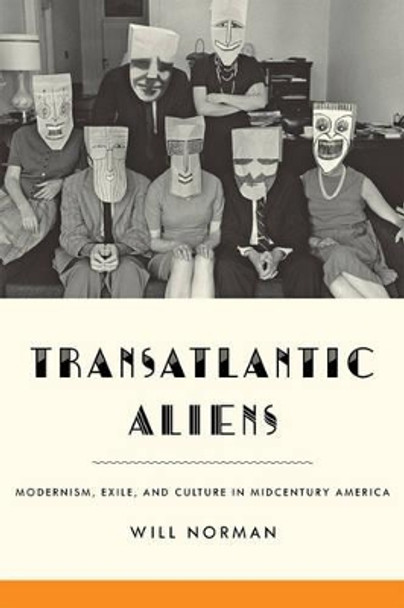The intellectual migration to the United States of European writers, intellectuals, and artists in the 1930s and 1940s has often been narrowly seen as a clash between a rarefied European modernist sensibility and a debased American mass culture. In Transatlantic Aliens, Will Norman reorients our understanding of midcentury American culture by thinking dialectically about the interfusion of aesthetic and intellectual practices across both the cultural hierarchy and the Atlantic. The transatlantic exchanges of midcentury emerge in the book as a crisis point for modernism at which claims for the autonomy of high culture became increasingly untenable, the geographical center of cultural authority was displaced, and the governing principles of the American cultural field went through a phase of dramatic instability. Norman relays this critical narrative through a series of interlinked case studies of key figures, including C. L. R. James, Theodor Adorno, George Grosz, Raymond Chandler, Simone de Beauvoir, Vladimir Nabokov, and Saul Steinberg. He discovers the strange afterlives of European modernism in disorientating and uncanny juxtapositions: the aesthetics of French symbolism flicker among the neon signs of a small town in the dead of night, and echoes of Mondrian's grids are observed in the form of a boardroom sales chart. At the heart of Transatlantic Aliens is a conception of alienation that encompasses both its political and aesthetic valences. What unites the exilic figures it addresses is the desire to transform the practical experience of alienation into a positive resource for criticizing and coping with a reconfigured postwar landscape. Addressed to scholars and readers of American and comparative literatures as well as of cultural history and visual culture, the book combines assessments of individual artworks, novels, and other texts with more distant readings spanning time and space. A gallery of color plates beautifully illuminates the book's analysis. Examining hardboiled fiction through Flaubert, New Yorker cartoons through modernist painting, and Bette Davis through Hegel and Marx, Transatlantic Aliens challenges and changes the way we understand modernism's place in midcentury American culture.
An exciting and accomplished scholarly project. Norman's compelling study shows the way our understanding of modernism remains-and should stay-inherently conflict-ridden. This subtle and illuminating book will contribute significantly to modernist studies and to the cultural history of the midcentury United States. -- Sean McCann, Wesleyan University, author of A Pinnacle of Feeling: American Literature and Presidential GovernmentAbout the AuthorWill Norman is a senior lecturer in American literature at the University of Kent. He is the author of Nabokov, History, and the Texture of Time.
ReviewsWriting with the style and vocabulary of modern intellectualism, [Norman] demonstrates the culture to which new scholars can aspire. Highly recommended. Choice
Book InformationISBN 9781421420943
Author Will NormanFormat Hardback
Page Count 288
Imprint Johns Hopkins University PressPublisher Johns Hopkins University Press
Weight(grams) 522g
Dimensions(mm) 229mm * 152mm * 24mm










